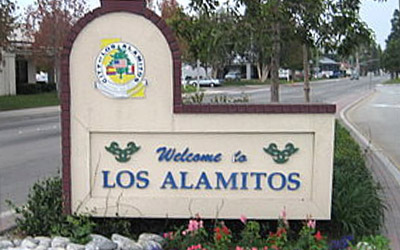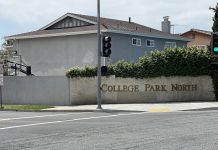Following a six- month listening tour and a survey of residents, the city council learned at a special meeting this week from its experts that the city of Los Alamitos, as an organization, with current revenues, is “unsustainable.”
Consultant David Cain reported on the city’s ongoing fiscal sustainability efforts at a special meeting this week. Bottom line, said Cain, “our ongoing revenues cannot meet our ongoing expenses,” given the massive pension debt that must be repaid.
Important to point out, however, that the city’s budget is balanced this year and, thanks to a surprising surplus of $600,000 in 2019, perhaps next year as well.
Longer term, however, the situation gets bleak as the city must begin to accelerate debt payments to the state’s retirement system, apparently $42 million in pension payments over the next 20 years.
From feedback obtained at the public hearings held across the city, officials say while the public is not happy about the situation, residents during the process expressed deep affection for the city and seem to be willing to work with officials alleviate the crisis.
Cain and Finance Director Erik Hendrickson laid out a series of findings to the council, including a prospective set of budget cuts that, even if implemented, would provide approximately $1.2 million in annual savings.
Moreover, Cain said they are attempting to put together a 20-year budget plan that not only meets the pension payment requirements, but hopefully be able to fund urgently needed list of capital improvements.
The team has identified capital improvement projects such as a community center, new city hall and others that will require approximately $60 million in capital over the next two decades, said Cain.
Nevertheless, he said the city knows they must act very soon. “Waiting for things to get better is not an option,” Cain emphasized.
During the public outreach, said Cain, citizens repeatedly expressed support for police services and public safety, as well as maintaining the current level of city services.
Of all the “revenue enhancement options” explored by the team, Cain said passing a new sales tax seemed to have the most chance of being approved by voters (see related story). Nevertheless, he said a parcel tax would be a non-starter, he said, noting significant resident opposition to a parcel tax.
Citizens also expressed strong support for an increase in the hotel/motel tax, but Cain said with the relatively few hotel rooms in the city, this option, if implemented, would only generate an additional $275,000 per year.
Hendrickson said the budget has been balanced for the past two years. Also, he said, the city is somewhat surprisingly projecting a fiscal year surplus of $595,000 for the current year.
Yet, said Hendrickson, it is likely that “we are going to need that money to balance next year’s budget.”
He said the city has reduced its workforce by 25 full time workers over the past decade and is cutting the budget wherever possible without reducing the current level of service. He called it “nitpicking,” adding that the current level of police service is off limits for cuts.
And, said Hendrickson, without revenue enhancements, the city’s pension payments will begin to bite hard into the budget in two years and will completely “exhaust” the city’s $8 million reserve fund by 2025.
“The budget is balanced now but can go downhill quickly,” he said. Citizens, for sure, want to make sure that any additional revenue provides for “local control. They want to keep the money here.”
While most of the discussions seeking a solution have revolved around a one-cent sales tax estimated to generate between $3 – 3.5 million per year in new revenue, council member Dean Grose asked staff to look into whether or not that amount will be enough a decade from now.
“How long is this $3.4 million (sales tax) going to hold us?,” asked Grose. He suggested asking voters to consider approving more, suggesting a one and one-half cent sales tax, if indeed the predictive models indicate more revenue would be required at some point in the future.
Grose also asked staff to investigate why a link on the city’s web site that once allowed citizens to drill down to city spending all the way into departments is no longer operable? “These are dollars the taxpayers are entrusting to us,” said Grose. “I’m not sold,” said Grose, adding that “I want taxpayers to have accurate information.”












